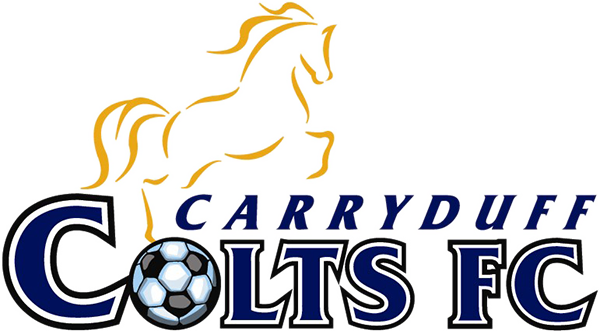These guidelines have been produced to help protect anyone working with young people in Carryduff Colts FC and should be followed at all times. If you have any queries regarding these guidelines, please contact the club’s Child Welfare officer, Pat Neeson.
The Guidelines:
- Always be publicly open when working with younger members. Avoid situations where you and an individual child are completely unobserved.
- Volunteers should avoid unnecessary physical contact with children. On occasion when an injury occurs or a child is distressed, the involved adult should explain to the child what he/she is doing, but only with the consent of the injured party and in full view of as many people as possible.
- Where possible, allow parents to take responsibility for their children in changing rooms. If groups are to be supervised in changing rooms, always ensure that adults work in pairs and that gender is appropriate.
- If travelling to an event is necessary, make sure that verbal (preferably written) permission is given by parents. Parents should be asked to ensure that children are collected on time.
- When mixed teams compete away, a male and female coach should always accompany them.
- All should respect the rights and dignity and worth of all and treat everyone with equality.
- Coaches should make sport fun, enjoyable and promote ‘Fair Play’.
- Coaches should consistently display high standards of personal behaviour and appearance.
- Coaches should never overtly criticise members or official’s judgements or use language or actions which may cause the children to lose self-esteem or confidence.
Practice coaches /volunteers should:
- Avoid spending any time alone with children/young people away from others.
- Never take children/young people to their home without parental permission.
- Avoid, where possible, taking children alone on car journeys, however short.
Coaches should refrain from:
- Engaging in rough, physical or sexually provocative games, including horseplay.
- Sharing a room/tent/changing room/bath or shower with a child/young person.
- Permitting or engaging in any form of inappropriate language unchallenged.
- Making sexually suggestive comments to a child/young person, even in fun.
- Allowing allegations made by a child to go unchallenged, unrecorded or not acted upon.
- Doing things of a personal nature that a young child can do for themselves.
- Agreeing to meet members on their own time.
Emergency Action/First Aid:
All coaches, leaders and members should be prepared with an action plan in the event of an emergency. This will include:
- Access to First Aid equipment
- Telephone contact if the participant is a minor
- Telephone contact to the Emergency Services
All coaches & volunteers are encouraged to demonstrate exemplary behaviour in order to protect children in their care, and themselves, from false allegations. The following are common-sense examples of how to create a positive culture and climate within our club.
- Coaches should respect the rights, dignity and worth of every person and treat everyone equally within the context of their sport.
- Coaches should place the well-being and safety of the child above the performance.
- Coaches should develop an appropriate working relationship with children based on mutual trust and respect.
- Coaches must not exert undue influence to obtain personal benefit or reward.
- Coaches should encourage and guide players to accept responsibility for their own behaviour and performance.
- Coaches should ensure that activities they direct or advocate are appropriate for the age, maturity and ability of the individual.
- Coaches should, at the outset, clarify with performers (and, where appropriate, with their parents) exactly what is expected of them and what players are entitled to expect from their coach. A simple checklist may sometimes be appropriate.
- Coaches should always promote the positive aspects of football (e.g. fair play) and never condone rule violations or the use of prohibited substances.
- Coaches should consistently display high standards of behaviour and appearance.


